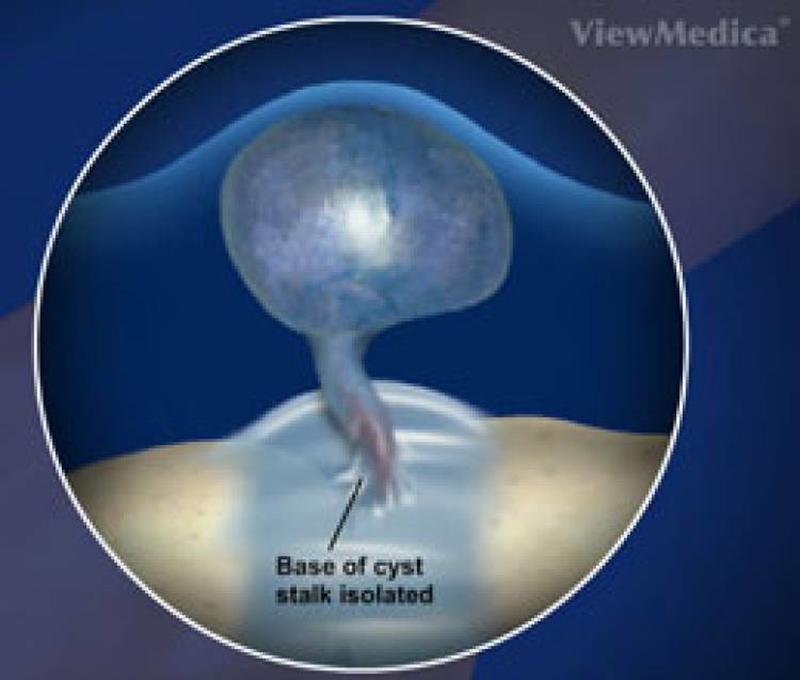A lot of times, people get different kinds of lesions and bumps on their palms, wrists, and fingers. Often, these bumps and lesions are thought of as being caused by some kind of physical injury, insect bites, or in some cases as work-induced blisters. Sadly, there are a few scenarios in which these wrist bumps can be caused by a far more "sinister" health problem. Medical science calls these bumps hygroma (which can also be called "ganglion cyst").

When a bump on your wrist is caused by a serious health condition, these bumps are called by doctors "hygroma." A hygroma can also be called a ganglion cyst in different medical non-formal health circles. This can be a sign of a rather serious issue.
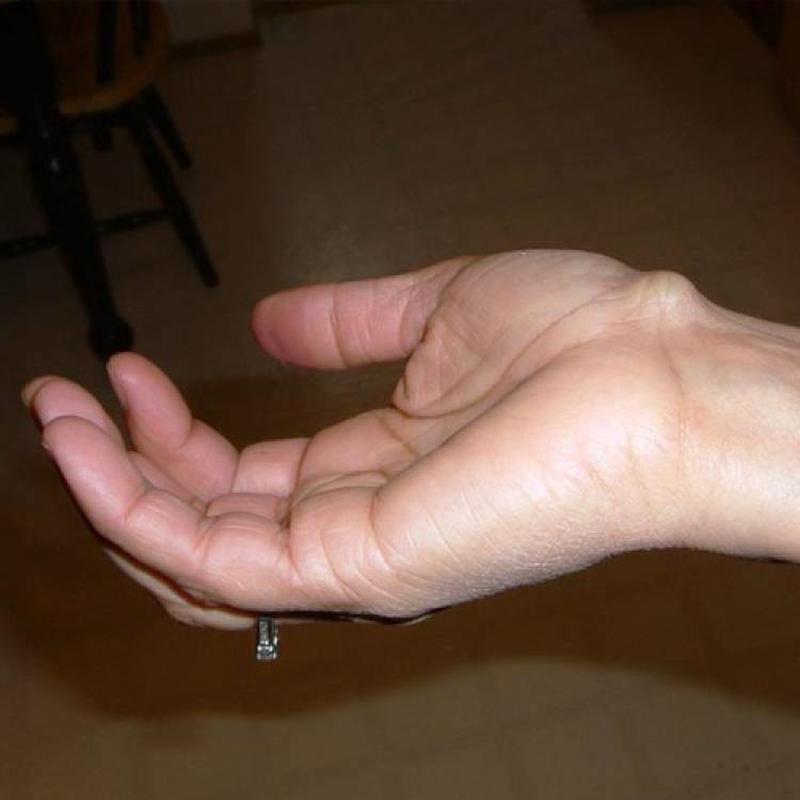
Most similar lesions and bumps are often caused by either insect bites, physical injury or are work-induced blisters (that is often the case with people who have physical jobs). A ganglion cyst is not caused by any of these listed scenarios.

Ganglion cysts are actually a benign formation, and they can often take the form of a capsule or a cyst, as shown in the above picture. These types of bumps, on that part of the wrist, are not just an aesthetic blemish that you can take for granted.
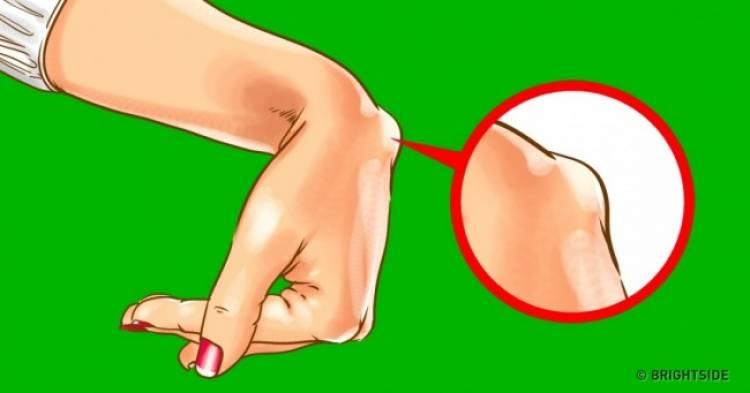
There are several different locations near your wrist where a ganglion cyst may appear. These bumps can either appear on the surface of the palm, near the center or closer to the thumb, in which case they will feel taut or soft to the touch.
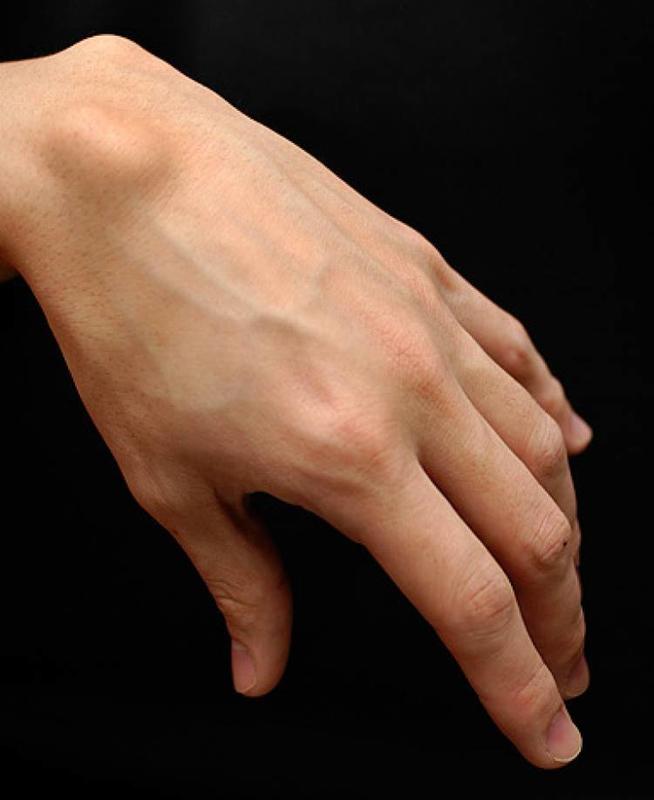
A ganglion cyst or a hygroma can also appear on the inner surface of the fingers, which can either be near the phalanx or the knuckle. Bums on these locations will also feel soft, and not very hard if you try to touch them with your other hand.
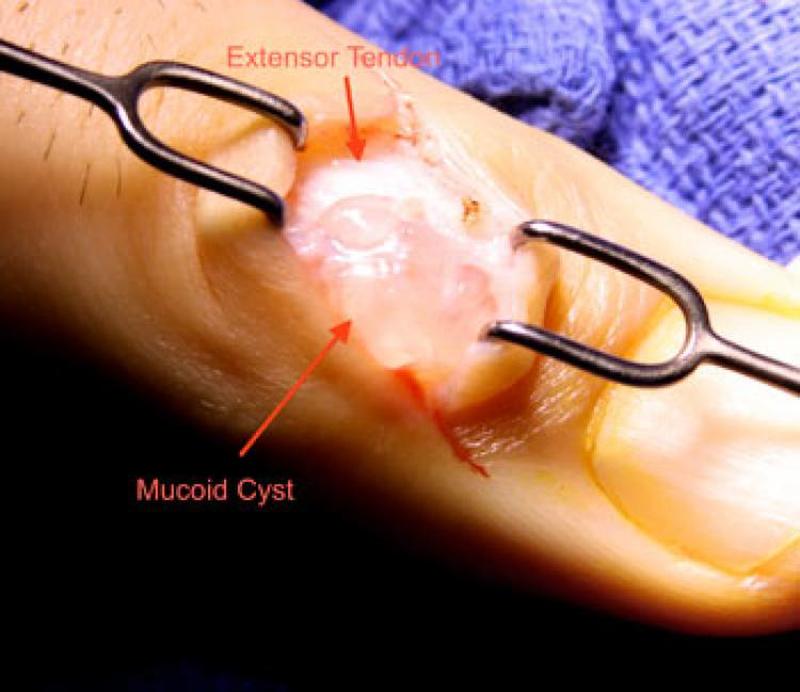
The reason a ganglion cyst may appear can be difficult to determine, as there are a few different causes, and all of them are serious in nature. One of those reasons is a measurable weakness or another type of defect to the osseous-articular apparatus.
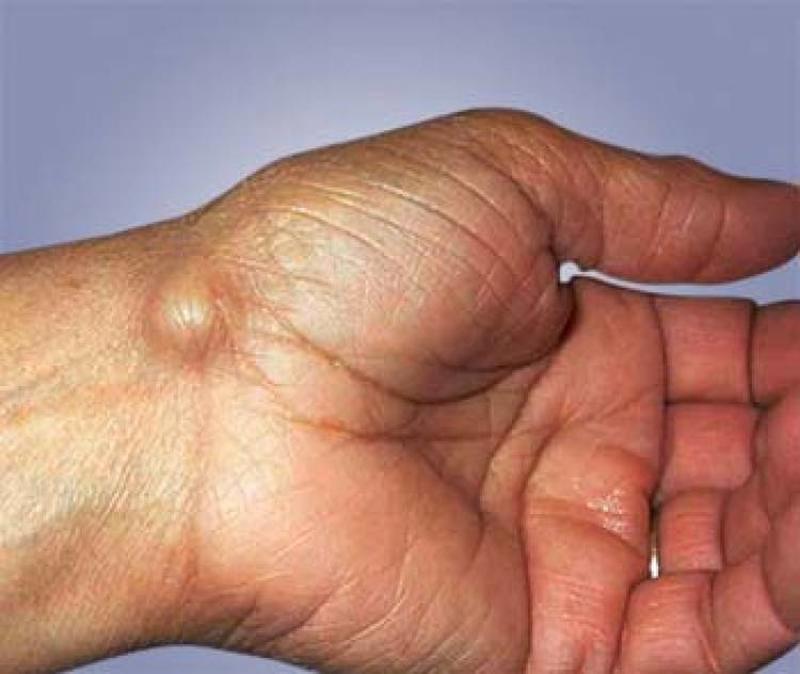
In one of the better scenarios for this type of symptom, the hygroma or ganglion cyst could have just been caused by a recent injury, sprain, or an improperly healed bone fracture. Many of these injuries could heal on their own or with some doctor care.
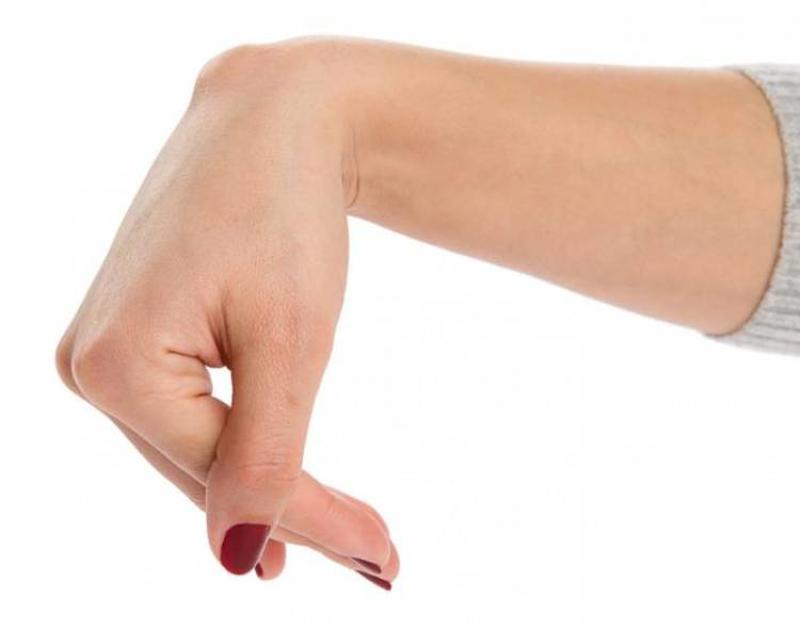
In one of the worst scenarios (which is typically seen in older patients), a ganglion cyst could be caused by a number of degenerative illnesses. These types of illnesses can affect the joints near your wrist, or cause an inflammation of the soft tissues
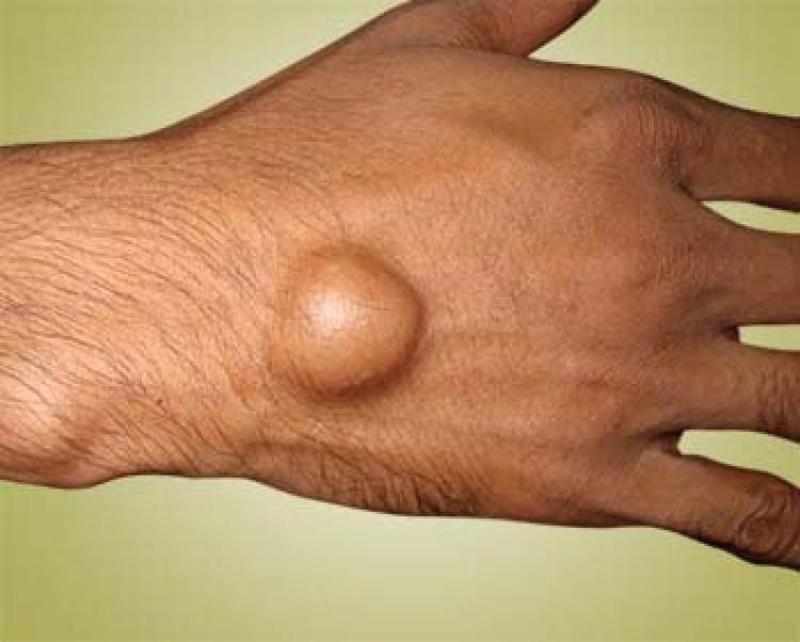
In some cases, an injury like the one featured on the above image can be caused by people that are otherwise involved in a job that requires them to do repetitive wrist movements (like musicians and those who work on computers have to do a lot).
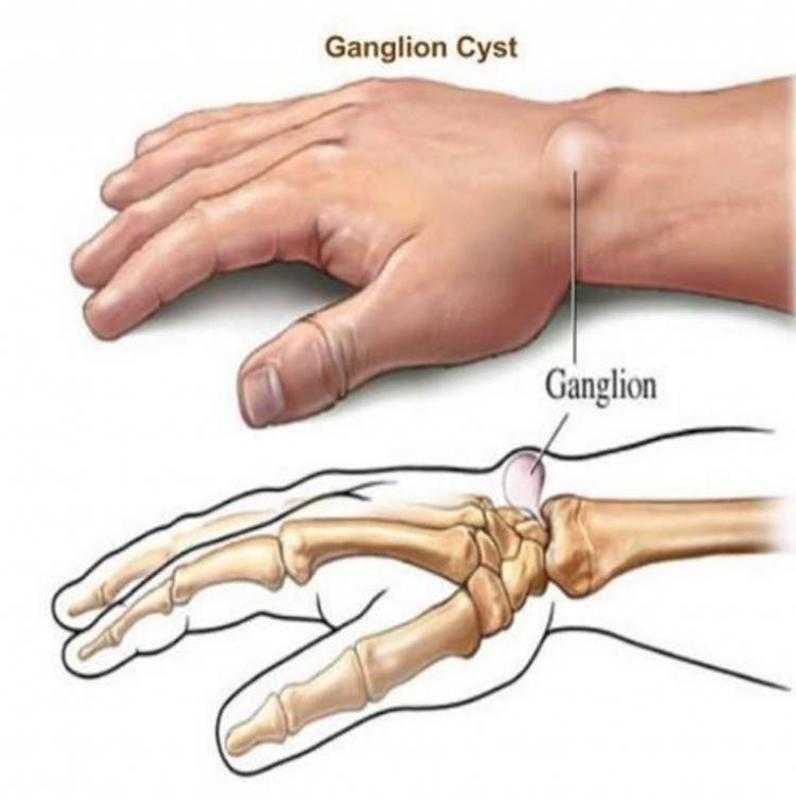
Just as there are different causes of a ganglion cyst, there are different symptoms that doctors and patients could use to get to a diagnosis. One symptom that occurs in a large part of patients is an inherent difficulty in moving the affect joints.
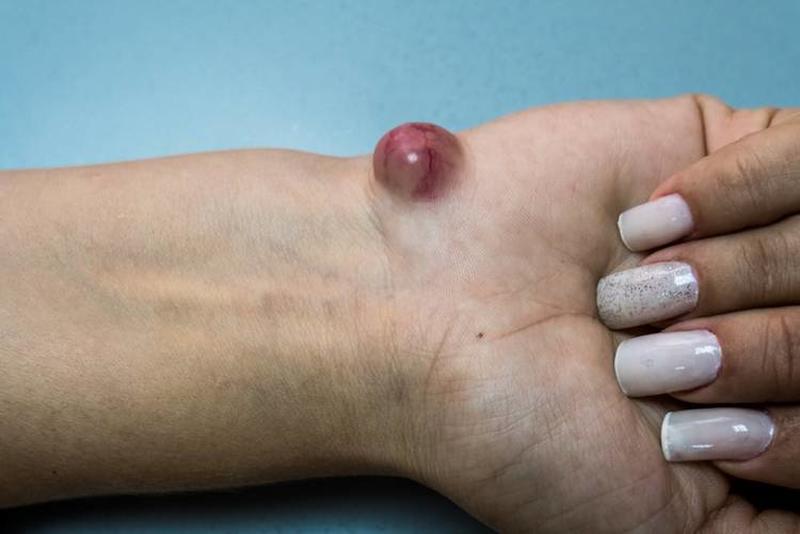
The growth rate of the cyst can vary a lot, from patient to patient, and even in the same patient if monitored during different periods. Sometimes, years can pass without the cyst growing even the slightest, while some months could pass and the cyst could double in size.
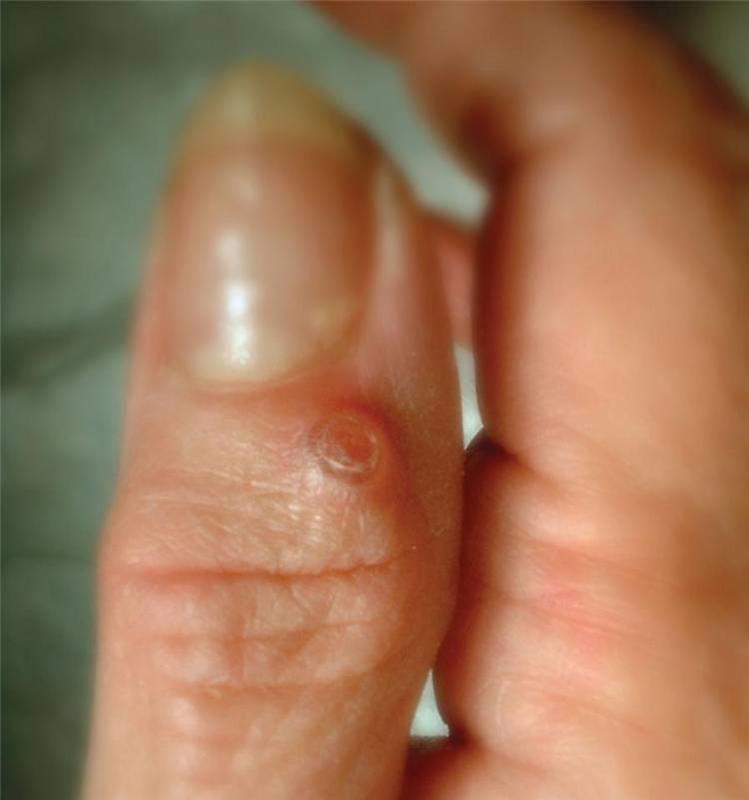
Another symptom that a lot of patients can experience (especially those that carry the cyst for a longer period of time), is that the skin on the bump could turn to a red color, and eventually begin to peel off - just like sun damaged skin does.

A lot of people can experience dull aching pain in their joints over time - that doesn't mean you have a ganglion cyst (unless you have some of the other listed symptoms in this story). Anyway, a dull aching pain can be caused by an irritation of the surrounding tissues.
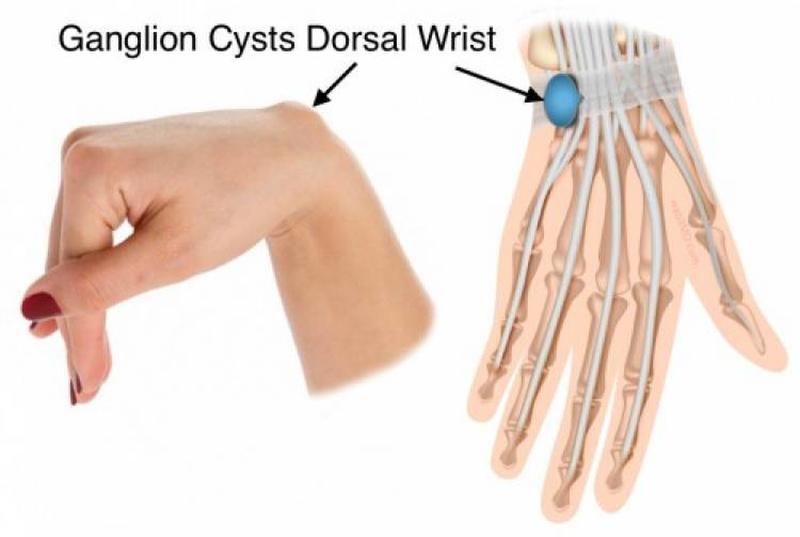
Another symptom that can affect a lot of patients is a decreased skin sensitivity in the area around the bump, or in some case the entire hand. This symptom is caused because a growing cyst is eventually going to place a lot of pressure on the blood vessels and nerve endings.
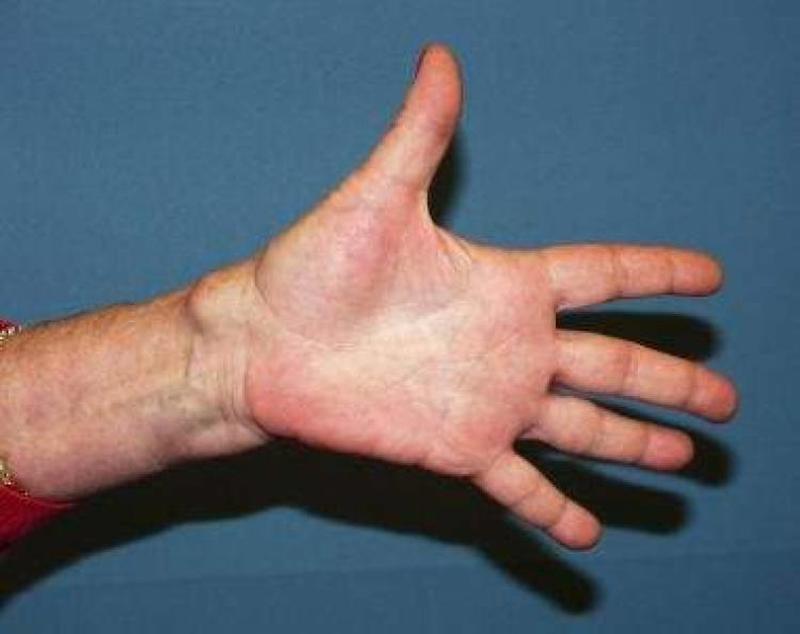
The good news for all the sufferers of this disease is that the ganglion cyst can't turn into a malignant tumor (those are the tumors that can spread through the rest of your body). A surgeon can easily remove a ganglion cyst without any possible complications.
